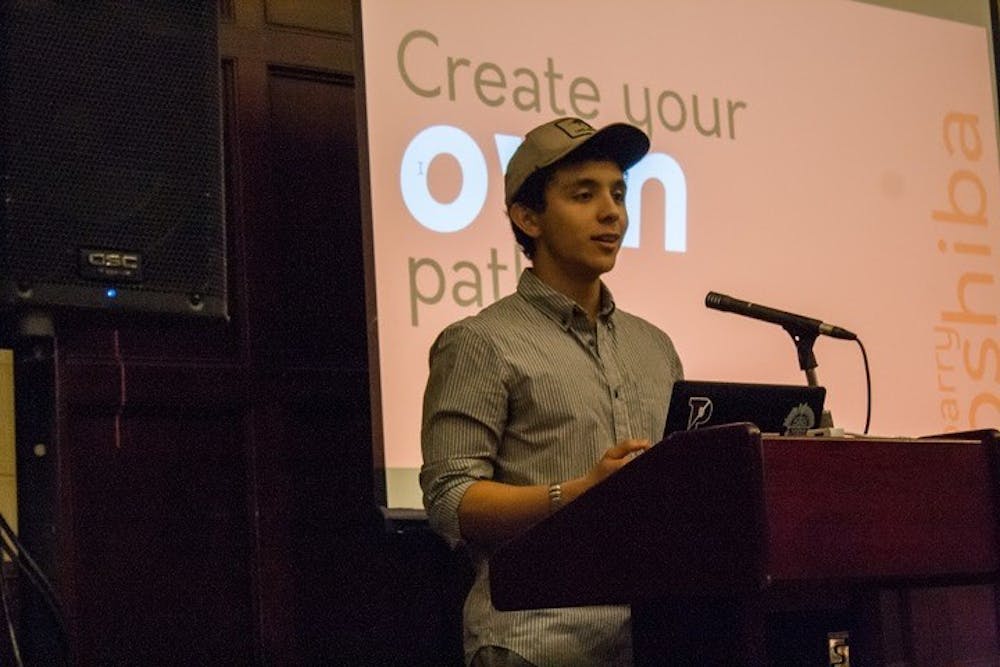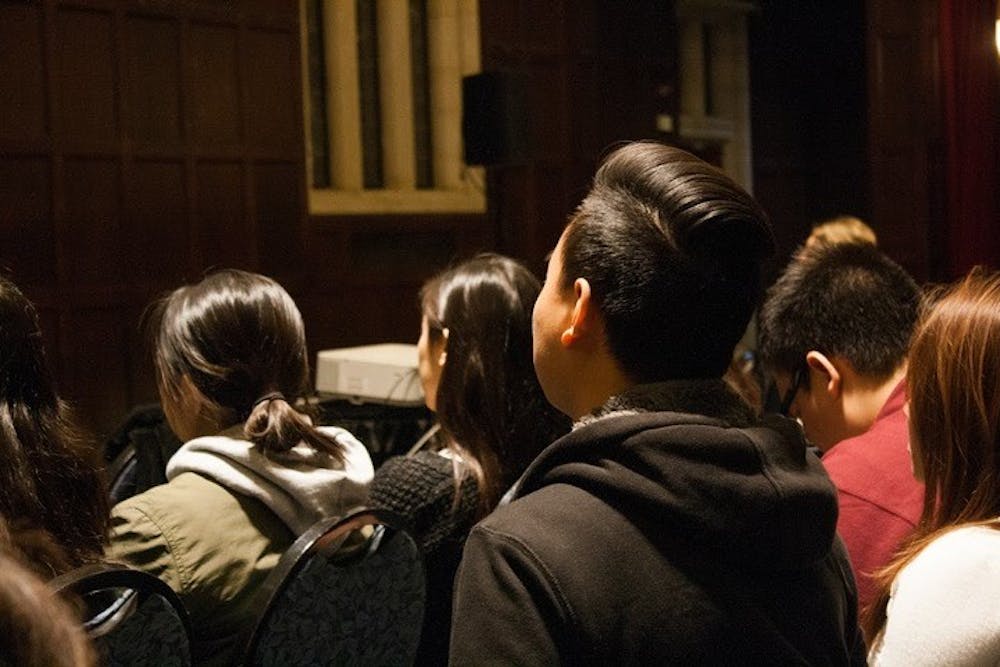
While some Penn students organize walkouts or protests to advocate for what they believe in, five artists featured during the 25th annual Asian Pacific American Heritage Week chose to pursue a different kind of activism.
During the APAHW event, “Art and Activism,” on Nov. 15, artists from Penn and Philadelphia showcased the ways they tackle problems in their communities.
This exhibition came a day after Youtube content creator Anna Akana visited campus to discuss Asian representation in media on Nov. 14, and a day before students hosted a dinner with the Asian American Studies department on Nov. 16. On Friday night, organizers held a workshop addressing Islamophobia, and on Saturday, APAHW will end with student performances in Houston Hall.
Within the Asian Pacific community, art can carry “a cultural stigma,” APAHW Executive Chair and Wharton and Engineering senior Vivian Ge said.
“When you’re growing up, most parents don’t really encourage you to become artists. If you wanted to act, there were very few roles," she explained.
Despite this stigma, one artist featured in the APAHW exhibition said he has been inspired to create art from his experiences.
College senior Barry Oshiba is the founder of the film company Nexo Productions. Oshiba’s experiences with filming include projects about Middle Eastern identity and documentaries of hospital patients who need medicinal marijuana.
“Especially in minority communities, we have this pressure from generations above to prove to society that we can contribute things, and we often think that art doesn’t necessarily contribute,” Oshiba said. “That’s ridiculous.”

Oshiba said he is particularly interested in the business side of filmmaking, emphasizing that more people of color need to be directing, producing, and funding films.
“[Minorities] need to be the people running the show,” Oshiba said. “That’s how we portray minorities in better and more fruitful contexts and reduce stereotypes and racism.”
APAHW Marketing Chair and College senior Michael Kwok agreed, adding that art allows Asian people to “reclaim identity, especially in a time where Asian Americans are being mischaracterized.”
Another piece of art showcased at the exhibition was a series of videos from the Penn student-run dance company, Arts House Dance Company, which was represented by AHDC Artistic Director and College senior Nicole Frazzini as well as AHDC Finance Director and Engineering junior Anushka Mahkija.

One of the videos showcased, which was entitled “Matthew,” was choreographed by Wharton senior Nick Silverio as a tribute to Matthew Shepard, a gay man who was beaten to death in Colorado in 1998.
Dances that explored body image and self-esteem include “Kleptomaniac,” a collaboration with Penn's spoken word group the Excelano Project, and “Reborn,” choreographed by Wharton senior Jennifer Li. In the videos, members danced to lyrics such as “I only know how to exist when I am wanted” and “You are worth more than a waistline.”
One of the guest speakers was filmmaker Imran Siddiquee, who writes for The Atlantic and BuzzFeed. He spoke about the nuances of the Muslim-American identity, the pressures to conform to traditional masculinity, and how those pressures can negatively affect women. These issues were all showcased in his short film “Love Reset.”
“You bottle it up, but it’s not as if it doesn’t go anywhere,” Siddiquee said. “When you feel weak or challenged one of the things you learn to do is take power from someone else. The way I coped with feeling targeted was by targeting other women.”
Another guest speaker was Carol Zou, a program director at the Philadelphia-based arts center, the Asian Arts Initiative. She spoke about her role in the organization, which provides funding, exhibition space, and guidance for art or urban planning projects. She also talked about how the organization recently collaborated with the nonprofit group Sunday Breakfast Rescue Mission to transform the once dilapidated Pearl Street in downtown Philadelphia into an Asian cultural space.
The Daily Pennsylvanian is an independent, student-run newspaper. Please consider making a donation to support the coverage that shapes the University. Your generosity ensures a future of strong journalism at Penn.
Donate




